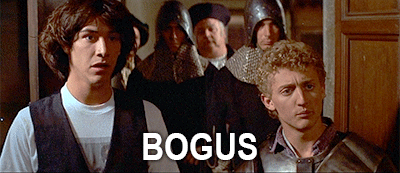
Remember those days when you so naively believed to be an author all you had to do was write? How I long for that innocence. In the current market, whether traditionally or indie published, authors are expected to be self-promoters, indeed have to be to survive. You hear a lot of buzz at conferences or online around the term “author platform” and a quick online search will find many great posts explaining what that is from Jane Friedman’s Blog to Writer’s Digest to The Book Designer and so on. However, all that information can be somewhat overwhelming, especially if you are just starting out and/or have a bit of a social media phobia. It’s also a bit of a catch-22; how can you have an online presence if you’ve never been published, but how can you get published without an online presence?

As I represent mainly fiction, an author’s platform doesn’t make or break my decision when I’m considering a submission. Nonfiction is a different story, more on that here from Rachelle Gardner who does represent a lot of nonfiction and here from Brooke Warner who works with a lot of nonfiction writers. However, I do like to see if the author is online savvy, which means they have the potential to build a good platform in the future. This will help my judgment whether I want to take the time to request and read their full manuscript or even offer them representation. The best way to show you have the chops to make it in this crazy online world? A solid author website. What constitutes a solid author website previous to publication? Basically it’s an online resume for agents, editors, and future readers.
- A home page that is either an introduction to you and your writing or a blog. If you are a terrible blogger and can’t sustain blogging regularly, do not have a blog. A dead blog is worse than no blog. If you can blog, try to blog about things of interest. Try not to blog about writing, there are millions of those blogs out there. Post about something related to your WIP, e.g. if you’re writing cozy mysteries themed around knitting, blog about knitting. For example, my client Lori Bentley Law blogs about women riding motorcycles and vintage cars, which features a lot in her writing and will pick up fans that might actually read her books. Some good advice about blogging here from Chuck Sambuchino at The Write Life.
- A visual theme that relates to the type of writer you are. If you write high fantasy, then the website should reflect this. Not that you have to have unicorns farting rainbows over wizards, but the site shouldn’t be hot pink with kisses all over it. Now if you’re writing YA romance, that’s a different story. My client Laura Palmer writes epic fantasy with artistic themes and the artwork on her site brings you straight into that world.
- Publications page. Any publications, i.e. short stories, interviews, guest blog posts, that fall under your author brand should be listed and linked either on your home page or on a separate page. If you have short stories published, congratulations! This is important information for potential editors/agents.
- Your work-in-progress page. This is where you have a pitch/summary of all your WIPs (that you consider ready or soon-to-be ready for submission). Gives the agent an idea of what more you’ve got under the hood. This isn’t an absolute must, but it’s nice to see. My client Rachelle E. Morrison has two pages dedicated to this and it definitely piqued my interest when I was researching her before our initial phone conversation.
- A bio page. If you don’t have any writing credentials, than this should have what inspires you to write, who your favorite authors are, why you write in the genre you write, and any real world experience that relates to your writing. My client Stacey Berg has a great example of simple but interesting bio.
- A professional bio photo next to your bio. No cartoons, avatars, cropped shots, just a simple and clear headshot of you. Does not have to be professionally done, just professionally appearing. See my client Sean Danker’s smirk. Also, this bio photo should be used on all your platforms that are linked to your online author presence.
- If you are on social media or participate in forums or have any other links relating to your writing and genre of choice these should all be clearly linked to your page. My client G.C. Nash is extremely active online outside just social media. However, most authors aren’t this active, and that’s okay.
- Should be easy to navigate. These days you have seconds to catch a browser’s attention. If your site is too full of stuff in the navigation bar, side bars, cluttered up pages, it can be distracting and turn the viewer off.
A great example of a simple but effective author website is my client Rati Mehrotra’s at ratiwrites.com. Although it’s not a professionally designed website, it straightforwardly gives all of her information as an author. Her bio, her credentials, her WIP, and a consistent blog, all linked to her other author online presences. And there is a subtle but clear theme that directly relates to her writing. I like to direct new authors there, because her site, in particular, helped me make my decision to represent her, and it’s not a hard site to replicate.
In the end although you don’t need an author website, it does make a difference, at least when I’m considering your submission.


Marvin Ginsberg
August 19, 2018 at 8:49 amHi Mary,
i am writing/completing my first book.
They are a string of one page vignettes with a common theme.
The stories are used as tools for the workshops and sessions I conduct.
i would like to build an audience for my book, and use the website as a calling card for my sessions and workshops incorporating the stories.
a) Should this be an author’s website, or a healer/coach website?
b) or both?
I am using WordPress. I am reconstructing the site now.
Thank you very much,
Marvin
Mary C. Moore
August 20, 2018 at 7:37 pmIt can be both I believe.
Marvinginsberg
August 21, 2018 at 3:47 amThat’s my feeling! Thanks!